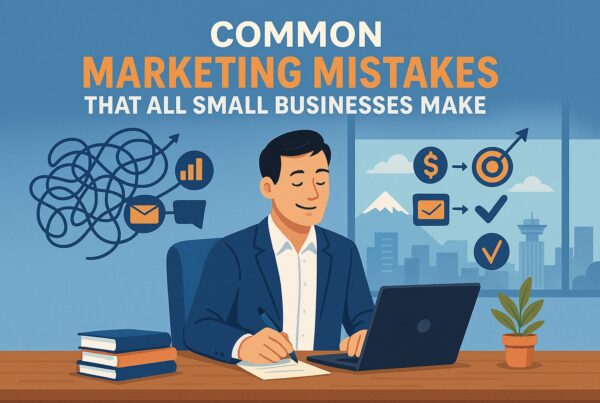Sales Is a Skill You Must Learn: Elevate Your Career with Essential Techniques
Why are sales skills crucial to your career progression? Sales is a skill you must learn, not just for selling products but for every aspect of your professional growth. Through mastering sales, you gain communication prowess, negotiation ability, and insights into customer behaviour—all of which translate to broader career success. This article navigates these fundamental skills and technologies in sales, equipping you to excel in sales and any career path.
Key Takeaways
- Sales process mastery is fundamental for effectiveness. It requires an understanding of each stage and the ability to uncover client needs through various research methods and interactions.
- Effective communication and emotional intelligence are critical in sales. They facilitate successful negotiations, establish trust, and foster long-term relationships with clients.
- Leveraging technology, honing negotiation skills, continuously learning, and developing a strong personal brand are essential strategies for staying competitive and achieving sales success.
Ready to elevate your sales game and advance your career like never before?
Click here to book a 15-minute call with me and unlock the secrets to sales mastery and professional growth!
Understanding the Sales Process: A Step-by-Step Guide

Becoming a successful sales professional starts with a deep understanding of the sales process. This process encompasses several stages, including:
- Prospecting
- Preparation
- Approach
- Presentation
- Handling objections
- Closing
- Follow-up
Each stage requires a unique set of skills and strategies, shaping the trajectory of any sales interaction.
A crucial step in the sales process is identifying the needs of potential clients. Sales reps can accurately determine these requirements by utilizing methods such as:
- Customer feedback
- User research
- Customer surveys
- Interviews with sales and service teams
- Competitive research
Asking pertinent questions regarding the customer’s business problem and its duration also aids in uncovering specific needs.
When presenting a product or service to a potential customer, the aim should be to provide value and solve problems rather than simply making a sales pitch. This involves:
- Meticulously planning your introduction
- Establishing a clear agenda
- Offering a comprehensive overview of your company
- Highlighting the benefits of your product or service
- Incorporating data visualizations
- Prioritizing verbal communication
- Actively engaging the customer through interactive questioning
By following these steps, you can ensure a captivating presentation that effectively communicates the value of your product or service.
The Art of Communication: More Than Just Talking

Any successful sales interaction hinges on effective communication. It encompasses critical elements like:
- Active listening
- Assertiveness
- Authenticity
- Open-mindedness
- Empathy
- Mastering communication nuances
A salesperson’s communication skills can make or break a deal, making them vital skills to hone. Effective communication salespeople spend significant time perfecting this skill to ensure success in the most important sales skills, which a sales manager highly values.
Active listening techniques can enhance sales communication. These techniques allow for the recognition of the prospect’s needs, validation of understanding, and request for clarification. This fosters a comprehensive, mutual understanding crucial for achieving successful sales outcomes.
In the sales process, body language or non-verbal communication has a significant role. A salesperson’s proficiency in interpreting and expressing appropriate non-verbal cues can influence decision-making and convey unspoken messages. A well-trained sales team in non-verbal communication can improve performance and close deals more effectively.
Emotional Intelligence: Connecting on a Human Level
Emotional intelligence can be a game-changer in the field of sales. It improves relationship skills, fosters trust with customers, and cultivates instincts that aid sales professionals in establishing genuine connections. These connections are essential for building enduring relationships that result in repeat business.
Emotional intelligence is critical in building rapport in sales conversations, extending beyond the initial interaction. By demonstrating empathy and understanding, sales professionals can create a comfortable client environment, encouraging open communication and fostering a positive relationship.
A sales professional’s emotional intelligence significantly impacts customer retention and business growth. By demonstrating understanding and empathy toward customers and addressing their emotional needs, sales professionals can create a favourable customer experience, foster loyalty, and personalize interactions with empathy.
If you’re interested in using emotional intelligence to connect with your clients on a deeper level and close more deals, I’m here to help.
Click here to schedule a call and discover how to build stronger, more meaningful customer relationships.
Time Management: Maximizing Efficiency
For any successful sales professional, time management is a critical competency. High-performing sales representatives enhance their efficiency in time management by:
- Prioritizing tasks
- Utilizing time batching
- Applying the 80/20 rule
- Eliminating unnecessary tasks
- Planning their sales day in advance
The 80/20 rule, also known as the Pareto Principle, indicates that 80% of sales are generated by 20% of customers. By prioritizing efforts towards the most lucrative prospects and activities, sales representatives can optimize their efficiency and effectiveness, ultimately leading to a more successful sales outcome.
Sales professionals have access to a range of resources to improve their time management, such as:
- Prospecting tools
- Customer Relationship Management (CRM) systems
- Calendars
- Automation tools
Developing soft sales skills, such as time management, is crucial for sales success, and mastering essential sales skills, including critical sales skills and important sales skills, can significantly enhance your performance.
The Psychology of Selling: Influencing Buying Decisions

Understanding the psychology of selling can have a significant impact on buying decisions in the realm of sales. Recognizing that emotions drive the purchasing process helps sales professionals customize their strategies and methods to resonate with the emotional needs and motivations of consumers, enhancing the potential for closing a sale.
Sales professionals employ a variety of psychological techniques in their strategies. These include:
- Social proof
- Creating a sense of urgency
- Storytelling
- Understanding cognitive biases
- Building credibility through expertise
- Establishing a human connection with the customer
- Using fear of missing out (FOMO) to their advantage.
The buying decision can be significantly influenced by addressing customer pain points. By demonstrating understanding and concern for the customer’s needs and offering solutions to alleviate those needs, sales professionals enhance customer satisfaction and play a pivotal role in influencing their purchasing decisions.
Establishing trust with potential customers during the sales process is also crucial for a successful sales outcome.
Business Acumen for Sales Success
The ability to make decisions that contribute to a company’s long-term welfare is termed business acumen. It holds significance in sales success as the decisions and actions of a salesperson have a direct impact on a company’s revenue and overall prosperity.
Sales professionals with strong business acumen integrate their expertise, understanding, viewpoint, and consciousness to make well-founded strategic decisions in sales. This involves:
- A comprehensive understanding of the customer’s needs
- Delivering tailored solutions to meet those needs
- Attentive observation
- Seeking guidance from experienced individuals
- Expanding professional connections beyond the sales department
- Continuous learning
- Gaining insights from clients
- Acquiring knowledge about various industries
Developing business acumen can contribute to organizational growth in a sales context. It empowers sales professionals to:
- Analyze and interpret customers’ financial statements
- Ask pertinent questions aligned with the customer’s business
- Grasp business challenges and prospects
- Cultivate essential skills such as foresight, discipline, emotional intelligence, and effective communication.
Leveraging Technology to Enhance Sales

Technology has revolutionized the sales landscape, enabling:
- The use of CRM systems
- Intelligent communication tools, including conversational marketing software
- Automation of manual tasks
- The integration of AI and machine learning
These advancements have greatly enhanced sales performance.
CRM systems have become an integral part of the sales process. They efficiently track every contact made with leads and:
- Generate and qualify leads
- Manage sales activities
- Manage contacts
- Schedule meetings
- Track deals
- Create sales emails
- Provide all necessary information to streamline the sales process.
Sales professionals today have access to a multitude of sales-enablement tools to manage customer data and enhance their sales performance. These include customer relationship management (CRM) systems, prospecting tools, and automation tools, which are instrumental in enhancing sales efficiency and performance.
Want to harness the power of technology to boost your sales performance?
Let’s discuss how you can integrate cutting-edge tools into your strategy. Book your consultation here and let’s revolutionize your sales process together!
Negotiation Mastery: Crafting Mutually Beneficial Deals
To craft mutually beneficial deals, overcome objections, and secure better outcomes for both parties, mastering negotiation skills is essential. Sales professionals can establish such deals by:
- Striking a balance between creating and claiming value
- Building rapport and trust
- Managing objections
- Seeking opportunities for collaboration
- Reviewing contractual terms
Win-win negotiation in sales leads to better outcomes as it incorporates equitable procedures that promote satisfaction, even if the result is not entirely one-sided. This innovative problem-solving approach identifies mutually advantageous resolutions for all parties concerned, leading to successful sales outcomes.
Negotiation can make or break a sale.
Want to learn how to craft deals that benefit everyone? Book a 15-minute call with me here and let’s work on honing your negotiation skills for better outcomes.
Continuous Learning and Adaptability
Continuous learning and adaptability are vital in the ever-evolving world of sales. They enable sales professionals to proactively address changing market conditions and effectively meet evolving customer needs.
Sales representatives can uphold adaptability in a swiftly evolving market by:
- Evaluating the situation
- Ensuring clear communication
- Adjusting their approach
- Nurturing their team
- Monitoring and evaluating their performance
Remaining attentive to the needs of target customers and being open to modifying strategies in response to market changes, along with working closely with marketing and product teams to synchronize strategies and messaging, are essential for maintaining adaptability.
Personal Branding: Becoming a Recognized Sales Expert

In sales, personal branding enables professionals to set themselves apart from competitors and establish credibility with customers, highlighting its importance. The essential components for creating a distinguishable personal brand within the sales industry encompass authenticity, reputation, storytelling, relationships, and a clear understanding of what you have to offer your audience.
Personal branding can significantly impact lead generation in sales. By establishing a robust online presence, demonstrating credibility, and attracting the appropriate audience to your business, sales professionals can drive their lead-generation efforts successfully. Broadening your network through personal branding involves:
- Creating content to enhance your personal brand
- Optimizing your profile
- Participating in events
- Conducting research
- Maintaining a robust online presence
Summary
From understanding the sales process to leveraging technology for sales enhancement, the journey of becoming a successful sales professional is multifaceted. Mastering the art of communication, developing emotional intelligence, honing negotiation skills, and nurturing business acumen are crucial elements in this journey. In this ever-evolving industry, continuous learning and adaptability are paramount to staying ahead of industry trends and effectively responding to changing customer needs.
The path to becoming a successful sales professional is challenging, but with the right set of skills and a dedication to continuous learning, the possibilities are endless. Whether you’re just starting in the sales industry or looking to refine your skills, the journey to sales success begins here.
Embarking on your journey to sales success requires dedication, skill, and the right guidance.
If you’re ready to take your sales career to the next level, I’m ready to guide you.
Click here to book your personal coaching call with me today!
Frequently Asked Questions
Why sales is an important skill to learn?
Sales skills are crucial for generating revenue, acquiring and retaining customers, and advancing in your career, regardless of your field. They empower you to understand customer needs, overcome objections, foster trust, and anticipate concerns.
What is the most important skill in sales?
The most important skill in sales is communication, as it forms the foundation of building relationships with clients and understanding their needs. It’s essential for establishing trust and navigating discussions with potential buyers.
How do you define sales as a skill?
Sales as a skill involves empathy, a deep understanding of customer needs, and the ability to engage with customers at their level and on their terms while adding value at every stage of the process. This means focusing on the customer’s needs over self-interest.
Is sales a skill or talent?
Sales is a skill that can be developed and improved with professional training and coaching rather than an innate talent.
What are the essential stages in the sales process?
The essential stages in the sales process include prospecting, preparation, approach, presentation, handling objections, closing, and follow-up. These stages form the backbone of a successful sales strategy.



